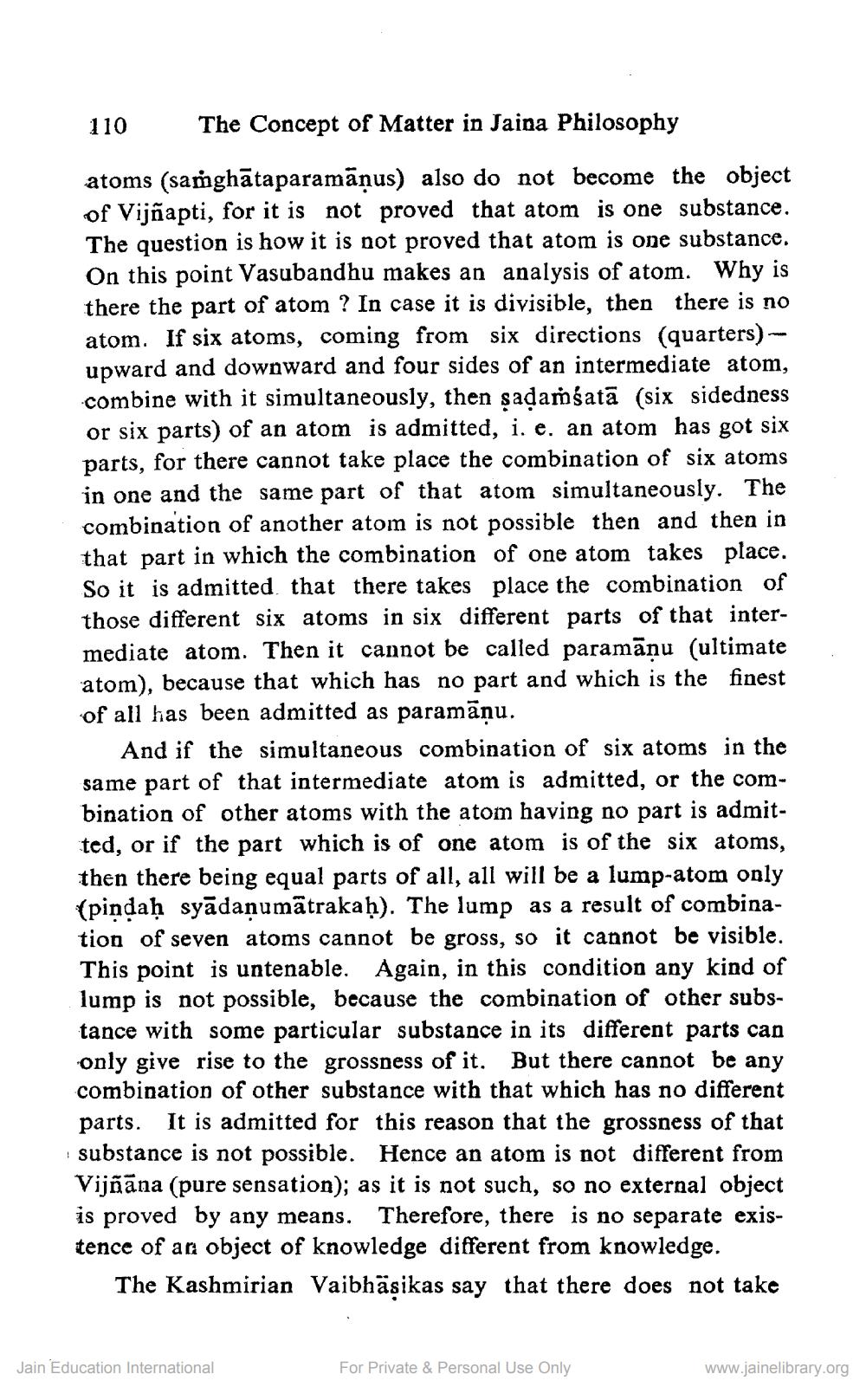________________
The Concept of Matter in Jaina Philosophy
atoms (samghataparamāņus) also do not become the object of Vijñapti, for it is not proved that atom is one substance. The question is how it is not proved that atom is one substance. On this point Vasubandhu makes an analysis of atom. Why is there the part of atom? In case it is divisible, then there is no atom. If six atoms, coming from six directions (quarters)upward and downward and four sides of an intermediate atom, combine with it simultaneously, then saḍaṁśata (six sidedness or six parts) of an atom is admitted, i. e. an atom has got six parts, for there cannot take place the combination of six atoms in one and the same part of that atom simultaneously. The combination of another atom is not possible then and then in that part in which the combination of one atom takes place. So it is admitted that there takes place the combination of those different six atoms in six different parts of that intermediate atom. Then it cannot be called paramāņu (ultimate atom), because that which has no part and which is the finest of all has been admitted as paramāņu.
110
And if the simultaneous combination of six atoms in the same part of that intermediate atom is admitted, or the combination of other atoms with the atom having no part is admitted, or if the part which is of one atom is of the six atoms, then there being equal parts of all, all will be a lump-atom only (pindaḥ syādaṇumatrakaḥ). The lump as a result of combination of seven atoms cannot be gross, so it cannot be visible. This point is untenable. Again, in this condition any kind of lump is not possible, because the combination of other substance with some particular substance in its different parts can only give rise to the grossness of it. But there cannot be any combination of other substance with that which has no different parts. It is admitted for this reason that the grossness of that substance is not possible. Hence an atom is not different from Vijñāna (pure sensation); as it is not such, so no external object is proved by any means. Therefore, there is no separate existence of an object of knowledge different from knowledge.
The Kashmirian Vaibhäṣikas say that there does not take
Jain Education International
For Private & Personal Use Only
www.jainelibrary.org




